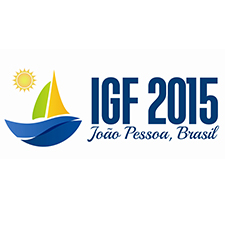The global “public interest” in critical internet resources
11 Nov 2015 14:00h - 15:30h
Event report
The workshop employed an interactive roundtable format giving each panelist two minutes to present their ideas, and then opening the floor for audience participation.
The workshop focused on how the Internet, as a global resource, can be managed in an open and inclusive manner that serves the public interest.
The panel started by trying to define the term ‘public interest‘ and determine what it means in respect to critical Internet resources. However, an agreement between the different representatives could not be met.
Jeanette Hofmann, The Humboldt Institute for Internet and Society Berlin, stated that: ‘Public interest, one could define it as a regulatory idea. Regulatory idea in that it is never something that is so concrete that you could achieve it and take it off and carry it onto the next goal.’
Other panelists provided a broader definition of “public interest” by including normative and political goals. Examples for these political goals would be social justice, redistribution, reduction of social inequality, preventing harm to future generations. These were deemed to be political goals that should be achieved through public interest regulation.
Olga Cavalli, representing the government of Argentina, defined public interest as related to equal access to various things that are essential for communities and people, such as social justice, education in relation to ICTs, Internet access, and access to health and water.
Jari Arkko, IETF Chair Finland, expressed the view that public interest encompasses a number of different public policy issues. What it crucial is to have an open process of running the infrastructure of the Internet.
By Suprita Sah
Related event

